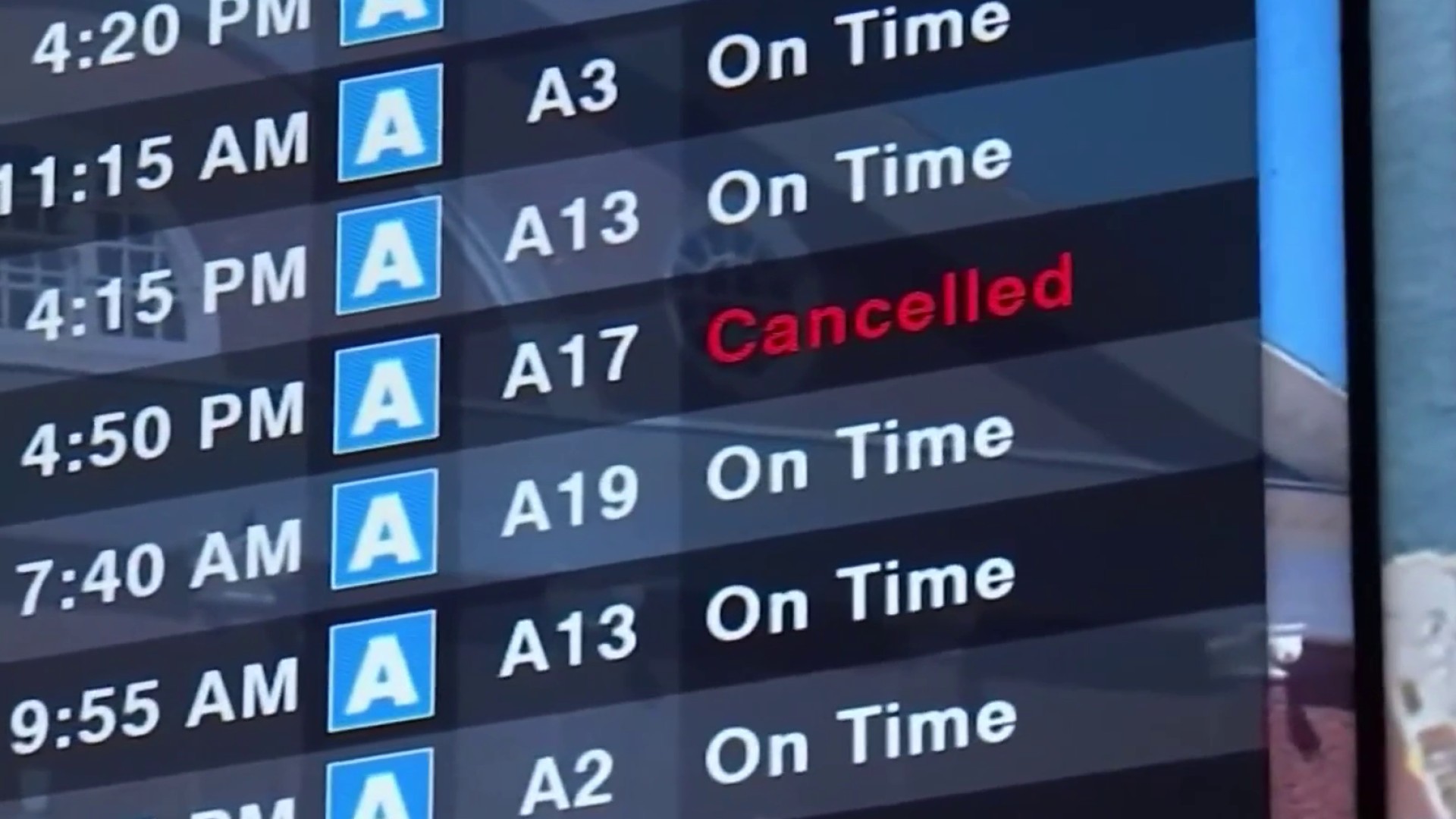A pet owner says that her dog almost died in United Airlines' care during a cross-country move, and afterward, the airline refused to pay her veterinary bill unless she agreed to sign a non-disclosure agreement.
Janet Sinclair loves her pets — her sleek greyhound, Sedona, and her cat, Alika.
That’s why she shipped them using United Airlines' "PetSafe" program in July, when she was making the move from San Diego to Boston. The program promises pets will receive personal handling in climate-controlled vehicles and "never will be exposed to temperatures greater than 85 degrees for more than 45 minutes."
"They assured me that my animals would get a safety stop – a comfort stop – in Houston that I paid extra for," Sinclair said.
MORE: Airline Animal Deaths Raise Concern
But, according to Sinclair, her pets were not safe. In fact, she says, the comfort stop nearly killed them. As she sat in her window seat looking out onto the tarmac of George Bush Intercontinental Airport in Houston, Sinclair says she saw a cargo employee kick Sedona’s crate six times to shove it under the shade of the plane’s wing instead of gently moving it there.
Urged by a fellow passenger, Sinclair began documenting what was happening to her animals.

"And the woman in front of me said – 'Is that your dog?'" Sinclair said. "And she said, ‘Honey, I sure hope you’re taking video of this.’ And that was the beginning of the worst day of my life."
She shot cell phone video that July day and shared it with NBC Bay Area’s Investigative Unit. The video she recorded periodically shows her pets left outside, not in a temperature-controlled vehicle. According to the National Weather Service, the high in Houston that day was 94 degrees. When they touched down in Boston, Sinclair said her dog was barely alive.
Local
"Sedona’s entire crate was filled with blood, feces, urine," Sinclair said. "Sedona was in full heat stroke. All of the blankets were filled with blood. She was urinating and defecating blood. She was dying, literally, right in front of me."
Sedona and Alika survived the trip. But their trying ordeal highlights the potential dangers of having pets aboard commercial flights as cargo. Over the last year, the Investigative Unit has uncovered more than 300 pets that have died, been injured or been lost in the care of airlines.
In Sinclair’s case, United Airlines claimed Sedona had a pre-existing health condition, even though Sinclair insists that, prior to leaving San Diego, both of her pets received a clean bill of health from their vet.
Despite the fact that Sinclair was never charged for shipping the pets, the airline agreed to pay the $2,700 it took to save Sedona. The greyhound spent three days being treated in the intensive care unit for heat stroke.
According to the vet that treated Sedona, she had a heat stroke, urinary tract infection and problems with the liver. The doctor’s report states, "We have no reason to believe that these medical problems were due to underlying disease, and we believe that these medical problems were secondary to hyperthermia that she suffered during her United Airlines flight."
But Sinclair would only get that money if she remained silent and signed a nondisclosure agreement.
Sinclair said no.
She even started a Facebook page "United Airlines Almost Killed My Greyhound."
United Airlines declined a request for an on-camera interview with NBC Bay Area’s Investigative Unit.
Instead, in a written statement United Airlines said, "We are committed to ensuring safe and comfortable travel of all the pets that fly with us and regret that Sedona did not have a good experience. We offered to compensate Ms. Sinclair by fully reimbursing her vet bill, but unfortunately she declined to accept the terms of the agreement."
In an email, NBC Bay Area asked Jennifer Dohm of United’s corporate communications office if the airlines will not reimburse Sinclair because she did not sign the nondisclosure agreement. "That’s correct," Dohm responded.
Also, by law, airlines must report whether a pet is hurt, lost or dies on a trip within 45 days of an incident occurring. As of November, the Department of Transportation has no record of Sinclair’s pets’ injuries, even though they were sustained in July.
According to Kelly E. Carter, president of TheJetSetPets.com and a best-selling author on pet travel, non-disclosure agreements are common. But she notes that this case highlights how shipping pets can be a gamble.
"People have to really stop and think about it long and hard," Carter said. "Is it worth it for me to check my family member into baggage?"
Sinclair said she feels that her pets were treated even worse than baggage. During the flight, she said, she spoke up to the flight attendant, saying, "We need to get my animals off that tarmac, they’re supposed to be in an air-conditioned van."
And, because her pets stayed out in the heat, and suffered because of it, Sinclair has decided to take her battle public.
"The only reason I’m doing this interview is because I didn’t sign that, and I won’t sign it," she said, referring to the nondisclosure agreement.
Carter agreed with Sinclair’s decision to air her story. "You have to go public. You owe it to the public, to the passengers, to the pets."
Today, Sedona and Alika are settling in to their new home on the East Coast. As for all the medical bills, Sinclair is still waiting for the airline to take responsibility.
"I still want to be reimbursed," she said. "But I’m not going to be quiet."



